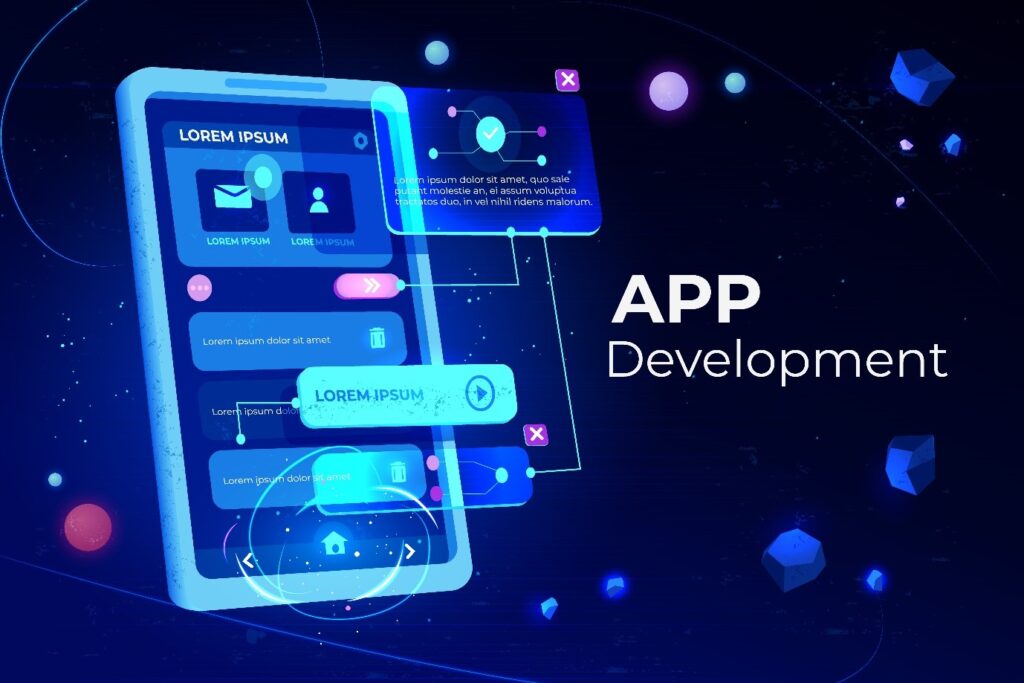
In today’s fast-paced digital world, smartphones have become an integral part of both businesses and daily life. From staying connected to managing operations, mobile apps have revolutionized how we interact, shop, and work. At NGXP Technologies, we understand the importance of leveraging mobile solutions to help businesses thrive. Whether you’re a startup or an established enterprise, having a strong mobile presence is key to engaging your audience and staying ahead in the market. In this blog, we’ll explore how the right mobile app strategy can transform your business and enhance customer experiences.
A Comprehensive Guide to Mobile Application Development
Mobile application development has become a crucial part of the digital landscape, enabling businesses to connect with users in innovative ways. As smartphones and tablets continue to dominate the tech scene, understanding the intricacies of mobile app development is essential for anyone looking to create a successful application. This blog will break down the fundamental aspects of mobile app development and provide a roadmap for getting started from scratch.
Understanding Mobile Application Development

Mobile application development is the process of creating software applications specifically designed to run on mobile devices such as smartphones and tablets. This process involves several key elements: creating software bundles that include both the code and assets necessary for the app to function, developing for various platforms like iOS and Android, and building user interfaces that are optimized for the unique constraints of mobile screens. Additionally, developers must implement backend services and APIs to support the app’s functionality, ensuring that it operates seamlessly across different devices and operating systems. Thorough testing and optimization for mobile hardware constraints are also critical to delivering a smooth user experience.
Key Components of Mobile Apps
Mobile applications typically consist of three main layers that work together to provide a cohesive experience. The presentation layer includes the user interface and visual elements that users interact with, while the business layer encompasses the core functionality and logic that drive the app’s performance. Finally, the data layer focuses on data storage and management, ensuring that user information is handled efficiently and securely. Each of these layers plays a vital role in the overall success of an app, as they contribute to both its functionality and user experience.
Approaches to Mobile App Development
When embarking on mobile app development, one of the first decisions to make is the approach to take. There are two primary methods: native development and cross-platform development. Native development involves creating separate applications for iOS and Android, utilizing platform-specific languages and tools to optimize performance. In contrast, cross-platform development leverages frameworks like React Native or Flutter, allowing developers to build applications that can run on multiple platforms from a single codebase. Each approach has its own advantages and considerations, and the choice depends on the specific requirements and goals of the project.
Getting Started with Mobile App Development
- Define Your App Idea and Goals: Clearly outline what your app will do and its primary objectives.
- Research the Market and Target Audience: Understand who your users are and what they need.
- Choose Your Development Approach: Decide between native or cross-platform development based on your goals.
- Select a Development Platform/Framework: Options like Flutter, React Native, or Xamarin can be considered for building your app.
- Design the User Interface and Experience: Create a user-friendly interface that meets mobile design standards.
- Develop Core Functionality: Build the essential features that will define your app.
- Integrate Backend Services and APIs: Connect your app to necessary data and services for full functionality.
- Test Thoroughly on Multiple Devices: Conduct extensive testing to identify and fix any issues across various devices.
- Optimize Performance: Ensure your app runs efficiently while considering mobile constraints like battery life and processing power.
- Publish to App Stores: Submit your app to platforms like the Apple App Store or Google Play Store for users to download.
- Maintain and Update Post-Launch: Continuously support your app with updates and improvements based on user feedback.
What are the common pitfalls to avoid during mobile app development
During mobile app development, some common pitfalls can greatly affect the success of a project. Inadequate market research and planning, such as not identifying the target audience, failing to research competitors, and underestimating costs, can lead to misalignment between the app and market needs. Another issue is poor UX design, where confusing navigation, overcrowded interfaces, and failure to optimize for different screen sizes can frustrate users. Additionally, feature overload can make the app too complex, detracting from core functionality. It’s essential to adopt a Minimum Viable Product (MVP) approach to ensure the app focuses on what users truly need. Neglecting performance and testing also leads to problems like bugs, crashes, and slow load times, while overlooking real-world testing can result in missing key user feedback. Security is another critical area, as weak measures can expose sensitive data to breaches.
Lastly, a lack of post-launch planning can hinder an app’s long-term success. Failing to prepare for updates, ignoring user feedback, and not providing ongoing support can quickly cause users to abandon the app. By addressing these challenges through careful market research, prioritizing intuitive design, focusing on core functionality, thorough testing, robust security practices, and planning for post-launch support, developers can avoid many common mistakes and deliver a more successful app that meets both user and business goals.
Conclusion

In conclusion, mobile application development is an exciting and dynamic field that offers vast opportunities for innovation and user engagement. NGXP Technologies stands as a pioneer in this arena, leveraging our extensive expertise to guide businesses in navigating the mobile landscape. Our commitment to excellence and innovation ensures that we deliver cutting-edge mobile solutions tailored to meet the unique needs of our clients. Whether you’re looking to develop a simple app or a complex enterprise solution, NGXP Technologies is your trusted partner in turning your mobile app vision into reality. Embrace the future of mobile development with us and watch your business thrive in the digital age.

